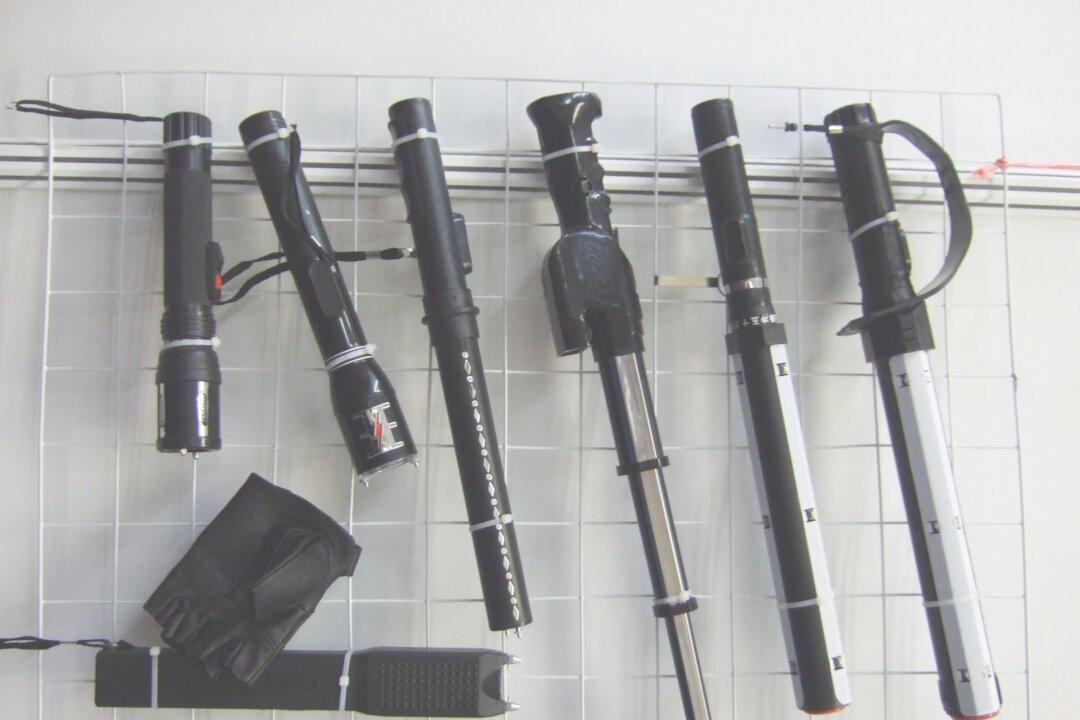If one day during school you beat your teacher about the head, denounced him as a “capitalist roader,” and led your classmates in a public criticism session, you would probably want to apologize for it later—or even 40 years afterward.
Such violence was common during the Cultural Revolution in China, which officially ran from 1966 to 1976, but there has never been a process of reconciliation. The Communist Party has never given a proper account of the period, merely declaring that Mao Zedong, the leader, was “30 percent wrong.” Everyone else was to simply move on.
Now, Chinese people are leading the healing themselves. They are writing letters to the editor, and using Internet tools like blogs and microblogs to apologize to teachers and elders that they abused horribly during that violent decade.
Chen Xiaolu, the son of a famous Chinese communist general, even paid a visit to the home of his Beijing school principal, Wen Hanjiang, to personally apologize for what he had done.
“As a student Red Guard leader and school committee director, it was because of me that school leaders, teachers, and students were criticized and sent to labor camps,” Chen wrote in the public letter, published on his blog in August. The term “criticism” refers to the energetic verbal attacks and public humiliation that was dealt out to class enemies.
“I was eager to rebel against those authorities because I didn’t have the courage to stop the inhumane persecution,” he continued. “I was afraid to be considered against the Cultural Revolution. That was a horrible time.”
“Such actions against our constitution, which infringe on human rights this way, should never be repeated in any form in China!” he added.
The public repentance has met with a welcome ear on the Internet, as many young people who are increasingly frustrated with the Communist Party’s control over media and information encourage transparency from those who were led into violence.
“The Cultural Revolution is the darkest time in China’s history,” wrote Gao Huimin, an administrator at Fudan University, on Weibo. “The tragedy it brought to the Chinese people is hard to describe.”
Because Chinese citizens are not well informed about the Cultural Revolution, they are often shocked by the disclosures in these repentance statements, alarmed by truth about the violent actions of ordinary citizens, particularly young people, against family, teachers, neighbors, and friends.
[During the Cultural Revolution, a daughter said to her father:” I want to cut all ties with you!” The father was forced to wear a sign that says: “black gang member.”]
“I will never forgive myself,” Zhang Hongbing told Beijing News in an interview in March of this year. Zhang told how, as a student Red Guard, he denounced his own mother as a “counterrevolutionary” for criticizing Mao’s policies. He witnessed her arrest with no regret, and watched her kneeling on the stage before her execution six months later by a firing squad.
In an effort to atone, and as a reminder of that time, Zhang said he has appealed to the local authorities since 2011 to have his mother’s grave marked and preserved as a historical landmark and a reminder of that time in China’s history.
During the Cultural Revolution, Mao Zedong radicalized a generation of young students—the Red Guards—to violently “rebel” and turn China upside down so he could enhance his grip on power in the Party amid the chaos. Political rivals had gained ground since the early 1960s, and the Cultural Revolution was Mao’s revenge.
The repentance letters reveal the truth about the fanatical students who brought about the deaths of millions of innocent people, either directly through brutal beatings or indirectly through denouncing them to authorities, who often sent them to the firing squads. Mao had given free rein to the young Red Guards, told police not to intervene, and endorsed their increasingly violent actions.
Former Red Guard Liu Boqin published an apology letter in Yanhuang Chunqiu, a reformist magazine, in March, saying that he had “grown old with painful memories of that year” when he denounced and harassed teachers and neighbors. He reflected that, although the environment of the Cultural Revolution coerced people into bad actions, still the individual must assume responsibility for his evil, not use excuses to wipe it away.
Retired Hebei official Song Jizhou published his apology letter to his junior high school language teacher Guo Kai in Southern Weekly in July. Because he was Guo’s star pupil, he was sent to collect evidence against the teacher, whose father was a landowner, one of the enemy political classes. Because of his reports, the teacher was denounced, criticized, and abused.
“I encourage all people who committed crimes during the Cultural Revolution to engage in deep reflection! China can’t have such chaos again. The Chinese people should never be taken advantage of that way ever again,” exhorted a Beijing netizen after reading repentance letters.
The Party still seeks to protect Mao’s image—the new Party leader Xi Jinping regularly invokes Maoist slogans, and has said firmly that the period of economic reform cannot be used to negate the Maoist era of “socialist construction”—but netizens do not hesitate to assign blame after learning the truth.
“Millions of Chinese people died from strife and poor farmers died from starvation,” wrote a netizen from Guangdong. “Only foolish people considered that devil Mao a lifesaver. If Mao Zedong wasn’t cruel and anti-life, how could so many people have died from starvation? Mao was truly a vampire, feeding off the people’s lives. He was a demon! Will people ever wake up?”




